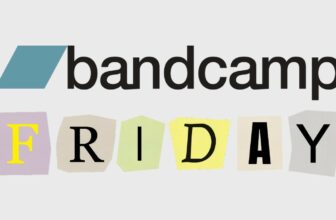Sped-up Versions of Songs – Why Are There So Many of Them?

Sped-up versions of songs are so popular at the moment because they’re one of the most popular categories of music on TikTok. Artists and record labels are capitalizing on the trend and releasing sped-up versions of their own tracks as a result.
Contents
Sped-Up Versions – Main Things to Know
- This type of music is not new. It was originally referred to as Nightcore music, which gained popularity in the 2010s.
- This is an incredibly polarizing topic. Visiting Reddit and searching “nightcore” or “sped-up songs” makes for quite the pastime!
- Sped-up versions of songs are extremely easy and cheap to produce, as they are simply increasing the tempo rather than doing any other major rework or remixing.
- Sped-up versions of songs are easily recognizable due to their fast pace and chipmunk-style vocals.
The single “Escapism,” from the up-and-coming London singer RAYE, is considered to be a landmark of sped-up versions of songs. RAYE hit her first U.K. Number One single with this infectious tune, which has almost hit 100 million views on YouTube at the time or writing:
“Escapism” is a finely crafted pop song. However, its popularity wasn’t primarily fueled by RAYE’s impeccable songwriting and production, but rather by a sped-up version that gained track on social media platforms such as TikTok. For millions of listeners worldwide, this is what “Escapism” by RAYE sounds like:
RAYE is probably the finest example of how sped-up versions of songs can help artists (even independent artists) reach a wider audience. Nevertheless, “Escapism” has left us with questions we simply cannot… Escape.
As sped-up versions of songs become less of an Internet fad and more of an industry trend, one must ask: Where do sped-up versions of songs come from? Why are they so popular? Are they changing the music industry for the better or worse? And do we really need them?
Sped-up versions of songs are really popular with record labels at the moment as they can give new life to old tracks, they’re very cheap and easy to make, and they have a huge audience—especially on social media. The trend started in the 2020s but is rooted in Nightcore, a genre that emerged in the early 2000s.
Where do Sped-up Versions of Songs Come From? (Nightcore Music)
The early 2000s was an exciting time for music nerds. With the emergence of the Internet, audiophiles gained access to a neverending stream of free music and audio editors. It was then Thomas Nilsen and Steffen Søderholm—two students from Norway—started speeding up MP3 tracks on a free dance-music software called eJay Dance 3 (which looked like this, by the way). In 2002, they released “Energized,” their first album under the moniker Nightcore.
Nightcore went on to build a niche audience and turn into a bonafide new music genre. It even inspired the creation of Daycore, an alternative version of Nightcore in which tracks are slowed down instead of being sped up. Nilsen and Søderholm were elevated to the status of Internet legends even though all they really did was make songs that already existed play faster than they were supposed to.
Nightcore achieved this by downloading tracks by other artists and turning their tempo up by several BPM. This may sound complicated if you’re not into music production, but it’s not. The whole process takes but a few minutes and requires no musical knowledge. Still, people were easily hooked to the Nightcore bangers in albums such as “Caliente:”
In the 2010s, the influence of Nightcore was mainly evident in two rising music genres: Hyperpop and Vaporwave. Hyperpop, mainly popularized by the PC Music record label and producers such as Dylan Brady, applied the same type of chipmunk-style vocals of Nightcore to full-fledged, original compositions. As for Vaporwave, it combined digitally manipulated tracks and samples (usually slowed down, but sometimes also sped up) with other musical elements such as beats, soft synths, and lush ambient soundscapes:
It took a while for the mainstream to catch up with Nightcore, but the practice of speeding up songs and uploading them online became standard in the early 2020s, mainly due to the popularity of reel-type social media platforms such as TikTok.
TikTok alone, however, isn’t enough to explain the recent emergence of sped-up versions of songs; so, why are there so many of them out there?
Why Are There So Many Sped-up Versions of Songs?
Sped-up versions of songs exist because of digital audio manipulation, Internet culture, and online fandom. But there’s got to be a reason why they have suddenly started popping up everywhere, right?
To put it briefly, sped-up versions of songs seem to serve a need of the music industry and do it with no hassle to its creators and promoters. Here’s how:
Sped-up versions of songs help to rehash old tracks
There’s nothing a businessman loves more than making money without spending money. In the music industry, sped-up versions of songs work just like that. Record labels can rehash old tracks by uploading sped-up versions online and promoting them on streaming platforms and social media. The sped-up version attracts new listeners who will eventually get curious and tune in to the original track, meaning record labels can profit even if the uploaded sped-up song isn’t copyright-protected.
Sped-up versions of songs are cheaper than remixes
Remixing is an art form. It involves rearranging most elements in a pre-existing song in a way that the entire song feels new. The process requires much effort, time, and music knowledge. And from the point of view of record labels, it’s quite expensive too…
In addition to rehashing old tracks, sped-up versions of songs function like budget or bootleg remixes that can save record labels tons of money. This doesn’t mean music executives aren’t investing in sped-up versions of songs. As reported by Billboard, “Labels and marketers say they sometimes pay these DJs anywhere from a few hundred dollars to $20,000 to remix and post songs.“
How to Make Sped-up Versions of Songs
Even when they’re not getting paid $20,000 to promote a new Nightcore tune, TikTok DJs and YouTube playlist makers are still putting a bunch of sped-up versions of songs out because they know they will have an impact and, most importantly, because they’re incredibly easy to make. Remember how Nightcore, the original duo, pretty much invented this whole thing with a laughably simple audio editor?
Making Nightcore songs is so easy that you can do it in under five minutes using any of the following methods (and there are probably more):
- Upload a song to your DAW of choice and speed it up. In Ableton Live, for example, you can achieve this by clicking “Warp” on the audio track and setting the project BPM to a higher tempo.
- Upload a song to a free audio editor and speed it up. Free audio editors are as effective at speeding up tracks as most DAWs, even when they have a limited number of editing options. In Audacity, for example, all you have to do is select “Effects,” “Pitch and Tempo,” and “Change Tempo.”
- Upload a song to a Nightcore app and speed it up. Yes, these are real and they abound! If you want to make a Nightcore hit without leaving your web browser, all you have to do is visit Nightcore apps such as Nightcore.Studio and Nightcore Creator.
Sped-up versions of songs have a huge audience
Sped-up versions of popular songs in the line of Rihanna’s “Diamonds” and Kali Uchis’ “Moonlight” can hit several millions of views on YouTube in just a couple of months, and some Nightcore Spotify playlists have hundreds of thousands of followers. Artists get made, songs get famous and re-famous, and everyone from independent content creators to major labels makes an easy buck.
In short, the number-one reason why there are so many sped-up versions of songs out there is because people like them! That’s what propelled the music industry to get so invested in this trend. Explaining why Nightcore songs have become suddenly popular in the 2020s despite existing for over two decades isn’t easy, but the rise of TikTok—undoubtedly the perfect platform for promoting sped-up versions of songs—certainly played a role.
Either way, there’s no escaping the fact that Nightcore has been (and will continue to be) heavily massified in this day and age. And while there’s a lot of good to it, there are also a few bad and ugly aspects to consider…
Sped-up Versions of Songs: The Good, The Bad and The Ugly
The Good
Every opportunity for artists to put themselves out there and reach a wider audience should be welcomed with open arms. Luckily, that’s precisely what sped-up versions of songs are. As discussed, RAYE and her hit single “Escapism” make for the most obvious example of how good “Nightcoremania” can be to independent artists. But there are plenty of others out there, and even more (many more) to come.
Sped-up versions of songs can even have a positive influence on songwriting if done properly. Take Ari Abdul’s single “Babydoll:”
“Babydoll” sounds great at “normal” speed, but listen as it transforms into a whole new track when sped up:
Regardless of the version you prefer, you have to agree that both songs sound equally natural, as though none of them was digitally manipulated to play at non-original speed. The sped-up version of “Babydoll” was even given a brand new video by Abdul and surely produced, mixed, and mastered with the same care music professionals would give to a “normal” track. This is Nightcore at its very best.
The Bad
Visiting Reddit and searching “nightcore” or “sped-up songs” makes for quite the pastime. There, I discovered that many people hate sped-up versions of songs to the core, with commentators describing it as “Literally the reason I watch everything on social media on mute,” “a coke OD simulation you can listen to” or simply something that “makes my head hurt.” No new genre of music will ever be consensual, but Nightcore seems to be particularly annoying to listeners. That’s one of the bad parts of sped-up versions of songs: they have been promoted so intensely that, unless you really enjoy them, you will probably find them to be tiresome, tacky, or downright maddening in a couple of years or less.
On Reddit, there was also a big discussion regarding how sped-up versions of songs are “tricking the copyright algorithm.” This isn’t true: If the goal of the people who make these versions was to surpass copyright control, they could’ve just made slight alterations to the song (such as a simple change in tuning) instead of “chipmunking” the whole track. Nevertheless, copyright infringement is worrying when it comes to Nightcore. The genre has been unlicensed from its very beginning, much in the spirit of the free-for-all realm of early 2000s online piracy. It’s just taken for granted that Nightcore creators have the right to appropriate music by other artists and release it on their for-profit YouTube channels or TikTok accounts. The likes of Rihanna and Kali Uchis won’t ever notice it, but what if it happened to your music?
Sped-up versions of songs are also bad because they’re standing in the way of truly new, truly original songs. Anytime you’re listening to a Nightcore song, you’re missing the chance to listen to an exciting new artist. Don’t take me wrong: some Nightcore tracks hit the ground running and can be very inspiring. But let’s be real: Is speeding up pre-existing songs doing anything good for the future of music?
The Ugly
Unfortunately, there are some ugly aspects to sped-up versions of songs too. Mainly, these relate to the way the music industry decided to incorporate and strategize around the Nightcore trend. As the genre was revealed to be a click-grabbing machine and not just an online niche movement, the big boys got in on the action. Sadly, as usual, they went after the money, not making better music or creating a better working environment for artists.
Record label manipulation is exemplified by the fact both Warner and Universal (two of the world’s largest record labels) decided to create their own Spotify playlists of Nightcore songs. At the time I was writing these words, Warner’s “sped up nightcore” and Universal’s “Speed Radio” had, respectively, 13 million and 9 million monthly listeners. Both are disguised as run-of-the-mill, fan-made playlists, but are in reality covert Spotify remix accounts. It’s no coincidence that, when asked to comment on the subject by The Guardian, Warner did not respond.
Finally, corporate greed gets even more ugly when one considers that all of the time, money, and effort that’s being thrown at these sped-up versions of songs could be invested in financing up-and-coming artists, hiring younger producers, or subsidizing mental-health programs for musicians. Yes, I’m aware record labels are profit-first enterprises: but is it right for them to act as though they owe nothing to music as an art form? There’s music without record labels, but no record labels without music.
Verdict: Do We Really Need Sped-up Versions of Songs?
Sped-up versions of songs are like second desserts: nobody really needs them, but it’s good to know they’re an option in case you feel like having some. Contrary to what the pessimistic paragraphs above may suggest, Nightcore is essentially a fun and inspiring online movement made by a mix of music enthusiasts and meme fanatics. Before reaching the mainstream, Nightcore was all but bad to have around (yes, even if we don’t really need it in our lives).
It was only in the way the music industry and social media abused and appropriated Nightcore that the genre started showing worrying signs. Fortunately, there’s room for hope. If we change the way things work in our very weird age of music, we can Hannah-Montana our way out of Nightcore and “get the best of both worlds.”
Sped-up versions of songs were never the issue, so let’s just relax, take a deep breath, and enjoy all of the good they have to offer.
Featured Image (Left): Cover Art from Escapism by RAYE





